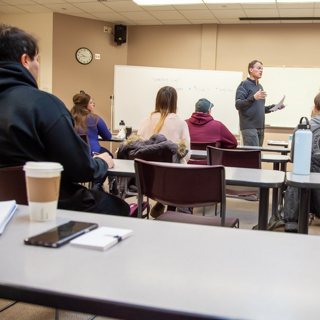Frequently Asked Questions
Sustainability encompasses human and ecological health, and social justice. It seeks to address the intersections between ecological integrity, economic prosperity, and equity and social justice.
This definition is informed from several places including the Sustainable Campus Committee bylaws which define sustainability as: “Sustainability addresses the interconnections between ecological integrity, social justice, and economic prosperity. Sustainability seeks to build economic prosperity without compromising social well-being or ecological health.”
Additionally, the Association for the Advancement of Sustainability in Higher Education (AASHE), the professional association of which UM is a member organization, defines sustainability as "an inclusive way, encompassing human and ecological health, social justice, secure livelihoods and a better world for all generations” (http://www.aashe.org/about).
Most of UM’s existing buildings are heated with steam from our natural gas-fired boilers. This steam travels around campus via underground tunnels. The boilers are from the 1960s. UM has recently invested in two combustion turbines - one steam turbine and a heat recovery steam generator that will be able to generate up to 5MW. The new Combined Heat and Power (CHP) plant is due to go online in spring 2024. Before the CHP project, most of UM’s electricity was sourced from NorthWestern Energy.
There are also several micro solar arrays across campus including the Todd Building, Eck Hall, Campus Recreation, the Lommasson Center, and the UM FLAT.
Main Campus has made consistent and incremental progress recommissioning and updating its buildings to improve energy efficiency and conservation. Projects underway change each year, so please contact us for details on specific buildings, savings realized, and current projects. In order to effectively track and measure energy consumption on campus, students have supported the purchase and installation of energy smart meters and condensate meters across campus. We are currently working on installing smart meters in all campus buildings. UM recognizes energy conservation as a critical strategy in reaching our goal of carbon neutrality and has seen a reduction in our GHG emissions by 10% below our 2007 baseline levels, largely due to energy conservation projects on campus.
UM recycling can handle nearly all recyclable materials except for glass. Please refer to the Recycling Guide for specifics.
RecyclingWorks is Western Montana’s only curbside glass recycling service. Please find more information about their services on their website. UM does not currently offer campus-wide glass collection and recycling, but small amounts of glass can be deposited in the University Center atrium outside the UC Market. The containers are serviced by RecyclingWorks.
The main culprit for sidewalk watering is in our older, manual systems. We have underground, spring-loaded ball valves that we can plug traditional impact lawn sprinklers into and they will run in full or partial circles. The problem with this is that the majority of sidewalk edges are straight and we are trying to achieve coverage with circles. This leaves us no choice but to run them over the sidewalks to avoid dead spots on the turf. We do our manual watering during the morning hours, but obviously, there is going to be some conflict with pedestrians. In general, our irrigation tech leaves an alternative route to building entrances to accommodate any watering that impacts pedestrians. UM is working to install automated irrigation across campus as it is financially able to do so.
Please visit our Get Involved tab at the top of this webpage!
